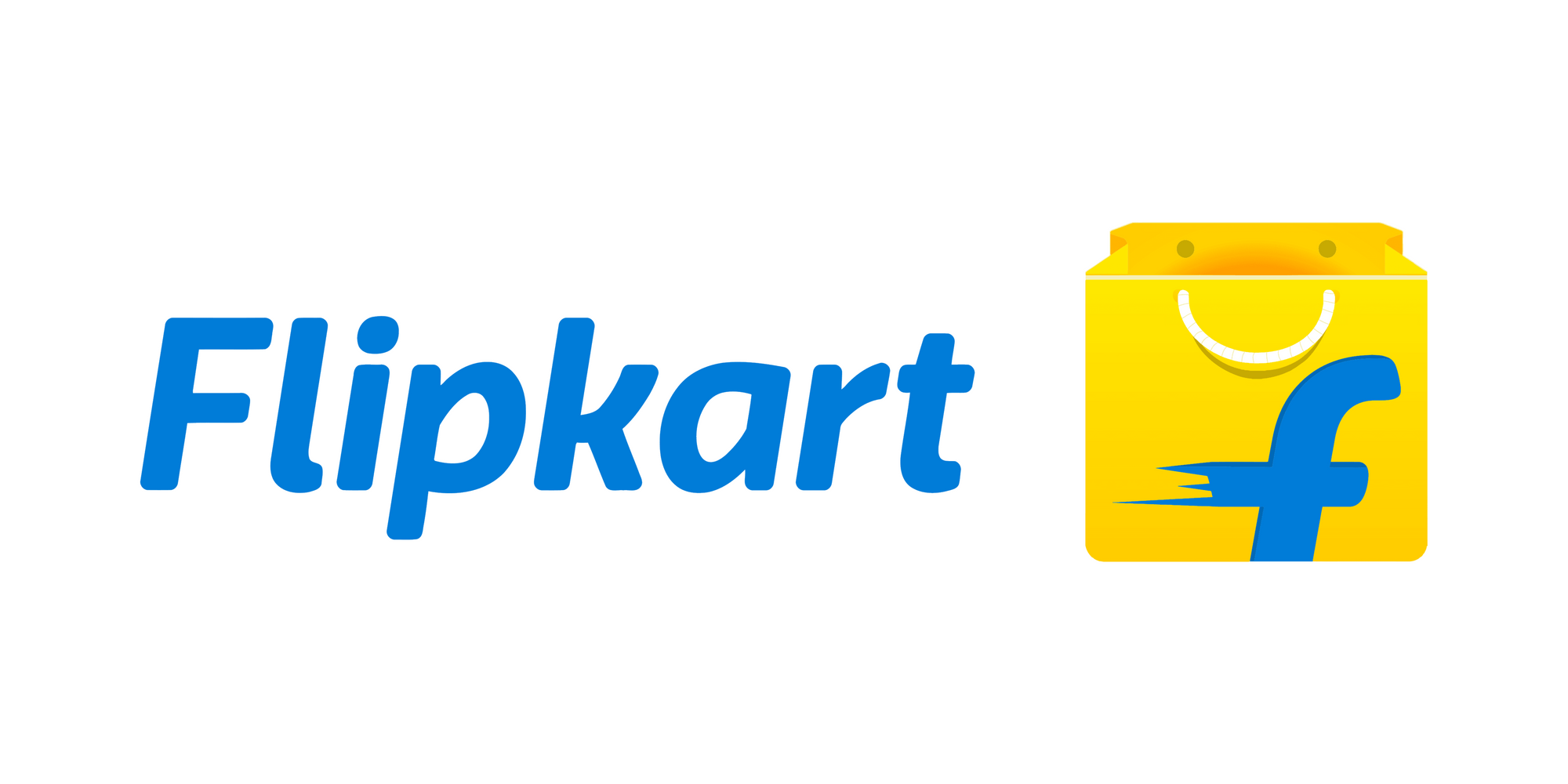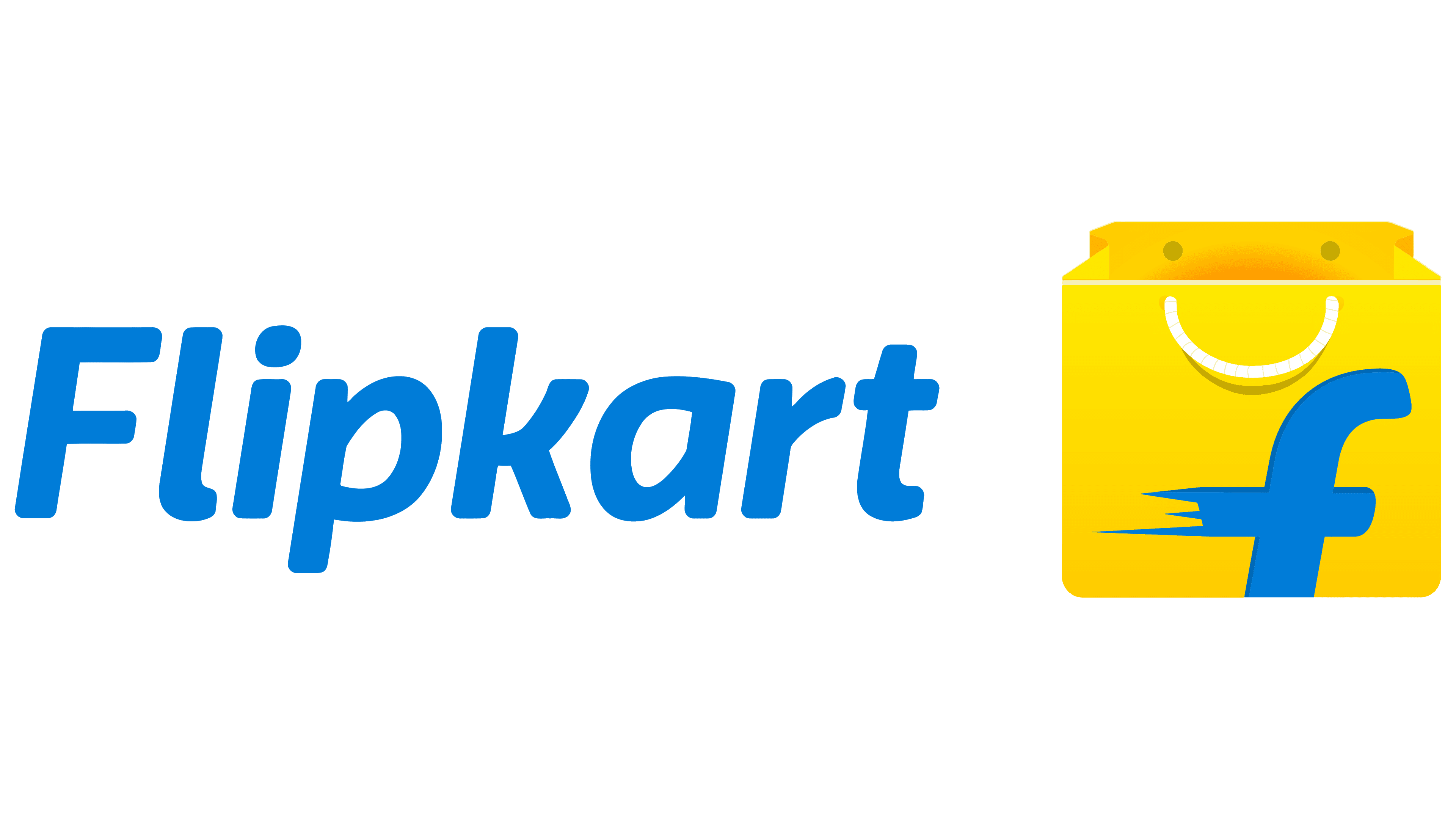

Flipkart, founded in 2007 by Sachin Bansal and Binny Bansal, is one of India's leading e-commerce companies. Originally starting as an online bookstore, Flipkart has grown into a multi-billion dollar enterprise offering a wide range of products, including electronics, fashion, home essentials, and groceries. With its customer-first approach, innovative strategies, and technological advancements, Flipkart has played a pivotal role in shaping the Indian e-commerce ecosystem.
In this blog, we will explore the journey of Flipkart, its mission, key milestones, services, and strategic future plans. Whether you're a job seeker preparing for an interview or an industry enthusiast, this in-depth overview will provide valuable insights into Flipkart's rise to prominence.
1. Flipkart Overview
About
| Attribute | Details |
|---|---|
| Founders | Sachin Bansal, Binny Bansal |
| Industry | E-Commerce, Retail |
| Founded | 2007 |
| Headquarters | Bangalore, India |
Company History and Milestones
Founding and Early Years (2007-2010):
- 2007: Flipkart was founded by Sachin Bansal and Binny Bansal in Bangalore. Initially, it started as an online bookstore, which quickly gained popularity due to its user-friendly interface and reliable delivery service.
- 2010: The company diversified into other product categories, including electronics, fashion, and lifestyle products, setting the stage for its massive expansion.
Growth and Global Expansion (2011-2014):
- 2011: Flipkart introduced the Cash-on-Delivery (CoD) payment option, a game-changer for the Indian market, which helped build trust among consumers and boosted online sales significantly.
- 2014: Flipkart raised a record-breaking $1 billion in funding, becoming one of the most highly valued tech startups in India. This was also the year Flipkart launched its own mobile app, further cementing its position as a leading e-commerce player.
Walmart Acquisition and Beyond (2018-Present):
- 2018: Walmart acquired a 77% stake in Flipkart for $16 billion, marking the largest e-commerce deal in history. This acquisition provided Flipkart with the resources and expertise needed to compete more effectively against global giants like Amazon.
- 2022: Flipkart launched Flipkart Health+, a digital health services platform, marking its entry into the healthcare sector. This move is part of Flipkart’s strategy to diversify its offerings and tap into new markets.
Key Milestones in Flipkart's History
| Year | Milestone |
|---|---|
| 2007 | Flipkart was founded as an online bookstore. |
| 2010 | Expanded into electronics, fashion, and other categories. |
| 2014 | Raised $1 billion in funding, launched the mobile app. |
| 2018 | Acquired by Walmart for $16 billion. |
| 2022 | Launched Flipkart Health+ and expanded into healthcare. |
2. Mission and Core Values
Mission
Flipkart’s mission is to make a wide range of products available to consumers across India, focusing on affordability and convenience. The company aims to harness technology to improve the shopping experience and contribute to India’s digital economy.
Core Values
Flipkart, a leading e-commerce platform in India, operates on five core values that drive its success and customer satisfaction. Let’s explore how these values shape Flipkart’s journey.
- Integrity
We strive to do what is right and do what we say we will do. - Inclusion
We value the uniqueness in everyone, respect differences, and foster a sense of belonging. - Audacity
We think big and take bold bets. We change the paradigm. - Bias for Action
We have a strong sense of urgency to solve problems strategically. - Customer First
We look at the world from our customers’ point of view.
3. Comprehensive Product and Service Offerings
Products
Flipkart offers a vast range of products, including electronics, fashion, home essentials, groceries, and much more. With a user-friendly interface and top-quality brands, it caters to the diverse needs of millions of customers.
- Electronics: Mobile phones, laptops, tablets, cameras, and accessories.
- Home Appliances: Refrigerators, washing machines, air conditioners, microwaves.
- Fashion: Men's, women's, and kids' clothing, footwear, and accessories.
- Home Essentials: Furniture, home decor, kitchen essentials, lighting, and storage solutions.
- Grocery & Essentials: Daily groceries, personal care, cleaning supplies, and packaged food.
- Books & Stationery: Fiction, non-fiction, academic textbooks, and office supplies.
- Beauty & Personal Care: Skincare, hair care, fragrances, and makeup products.
- Toys & Baby Products: Toys, clothing, and other essentials for babies and kids.
- Automobile Accessories: Helmets, car covers, and automotive tools.
- Sports Equipment: Fitness equipment, outdoor sports gear, and clothing.
Features:
Flipkart’s offerings enhance the shopping experience with features like Flipkart Plus Membership, Pay Later options, and No Cost EMI, along with reliable product protection plans and quick delivery services. These features ensure convenience, value, and satisfaction for every customer.
- Flipkart Plus Membership: Offers benefits like free shipping, early access to sales, and reward points.
- Flipkart Pay Later: Allows users to buy now and pay later with no immediate payments.
- Flipkart Wholesale: A B2B service offering bulk purchasing options for retailers.
- Flipkart Axis Bank Credit Card: Cashback offers, discounts, and reward points on purchases.
- Flipkart SuperCoins: A rewards program where users earn coins for purchases and redeem them for various benefits.
- Flipkart Exchange Offer: Allows customers to exchange old gadgets for discounts on new ones.
- No Cost EMI: Installment payment options without any interest for specific products.
- Product Insurance: Extended warranty and protection plans for electronics and appliances.
- Flipkart Quick: Hyperlocal delivery service offering delivery within 90 minutes for essential products.
- Flipkart Assured: A mark of high-quality products that have passed stringent quality checks.
- Mobile Protection Plans: Accidental damage, screen damage protection, and extended warranty services for smartphones.
4. Key Competitors of Flipkart
Flipkart operates in a highly competitive landscape, with several key players in the e-commerce and retail industry. Here are some of its major competitors:
1. Amazon India
- Overview: Amazon is a global e-commerce leader with a strong presence in India, offering a diverse range of products and innovative solutions for both sellers and buyers.
- Offerings: Competes with Flipkart through services like Amazon Prime, Amazon Pay, and AWS (Amazon Web Services). Their logistics are supported by Amazon Transportation Services and Amazon Fresh for groceries.
- Market Position: As Flipkart's biggest competitor in India, Amazon is known for its customer-centric approach, Prime membership perks, and fast delivery networks, making it a significant player in the Indian e-commerce space.
2. Snapdeal
- Overview: Snapdeal is an Indian-origin e-commerce platform that emphasizes value-for-money products, catering to cost-conscious consumers.
- Offerings: Specializes in budget-friendly products across categories like fashion, electronics, and home essentials. They provide cashback and discounts via Snapdeal Gold and other seller services.
- Market Position: Although it has lost some market share, Snapdeal continues to target a niche segment focused on affordability and competitive pricing within India.
3. Reliance Retail (JioMart)
- Overview: Reliance Retail's e-commerce wing, JioMart, focuses primarily on groceries and FMCG products but is rapidly expanding into other categories.
- Offerings: Competes with Flipkart through JioMart, offering affordable groceries, electronics, and fashion. They leverage Reliance's vast physical retail network for omnichannel strategies.
- Market Position: Backed by the financial and infrastructure muscle of Reliance Industries, JioMart has become a formidable force in the Indian e-commerce market, especially in grocery delivery.
4. Myntra
- Overview: Myntra is a leading fashion e-commerce platform, known for its wide selection of apparel, footwear, and accessories for both men and women.
- Offerings: Myntra focuses on fashion and lifestyle products, offering a vast collection of premium, national, and international brands. It also provides services like Myntra Insider, a loyalty program with rewards and early access to sales.
- Market Position: Though owned by Flipkart, Myntra operates as a standalone brand and competes in the highly specialized fashion e-commerce space, serving as a go-to platform for fashion-conscious consumers in India.
5. Tata CLiQ
- Overview: Tata CLiQ is an e-commerce platform by the Tata Group that offers a premium range of electronics, fashion, and lifestyle products.
- Offerings: Known for curated collections of premium brands, Tata CLiQ offers a combination of online and offline shopping experiences through CLiQ Luxury, CLiQ Electronics, and partnerships with top brands.
- Market Position: Tata CLiQ positions itself as a premium platform, differentiating from Flipkart by focusing on higher-end products and a seamless online-to-offline customer experience.
5. Corporate Social Responsibility (CSR)
Flipkart’s CSR initiatives focus on empowering marginalized communities, promoting sustainability, and enhancing skills. Through various programs like waste reduction, natural farming support, and youth skill training, Flipkart drives sustainable and inclusive growth.
